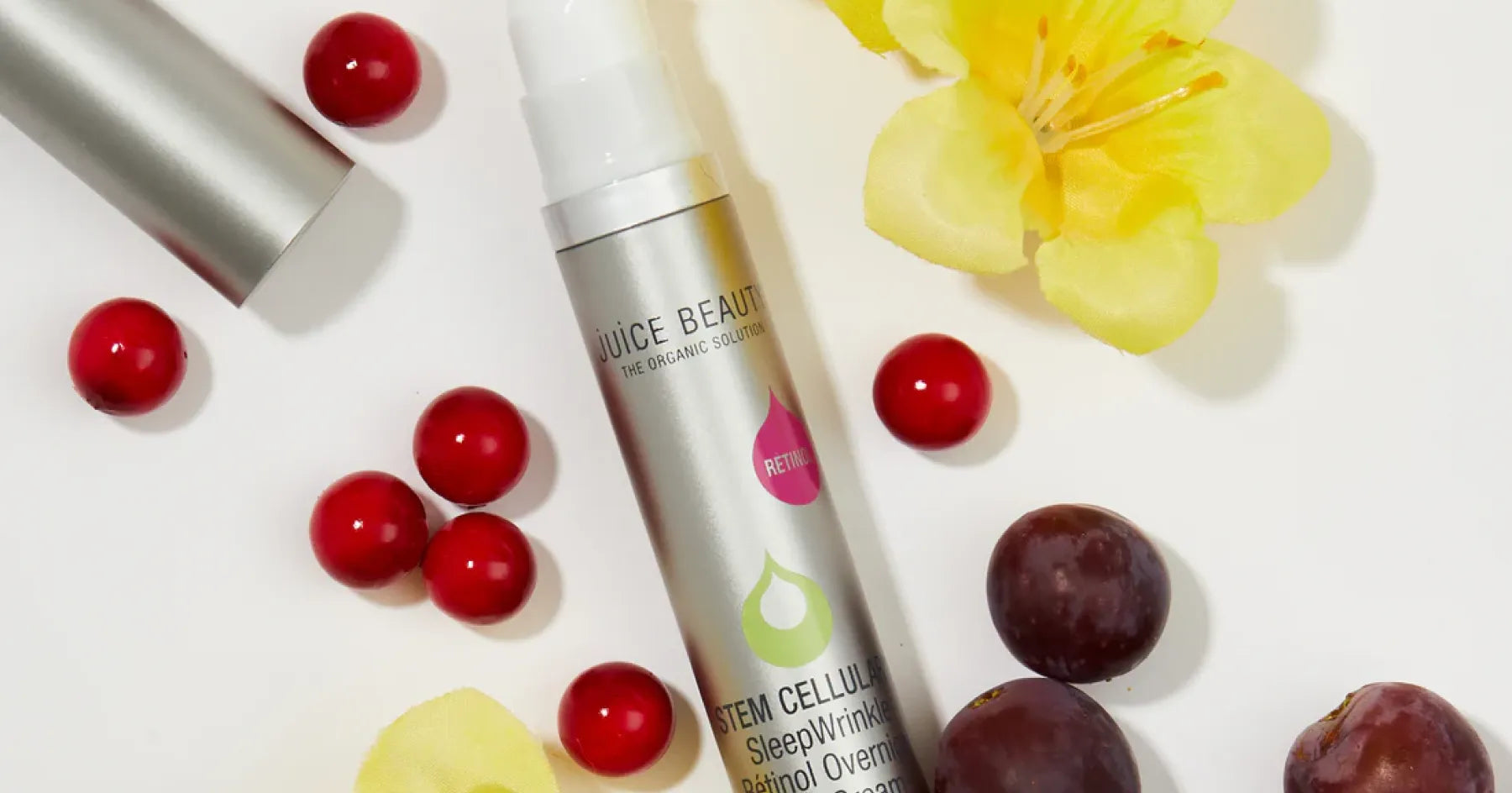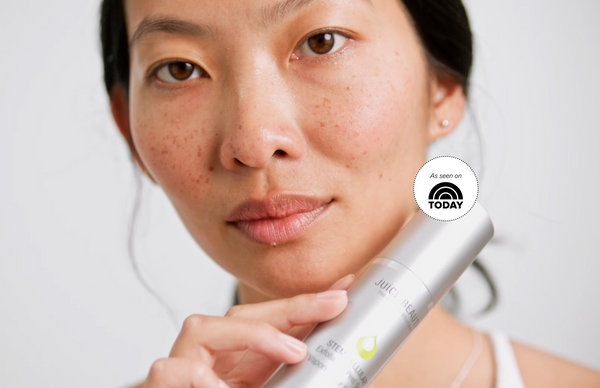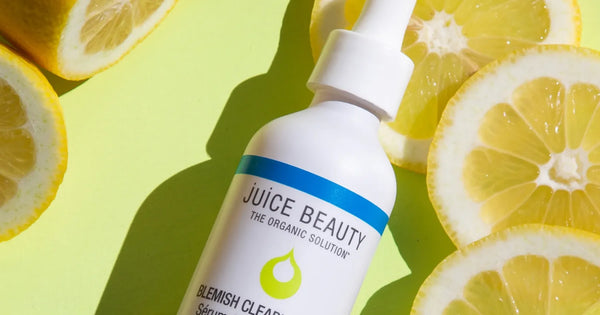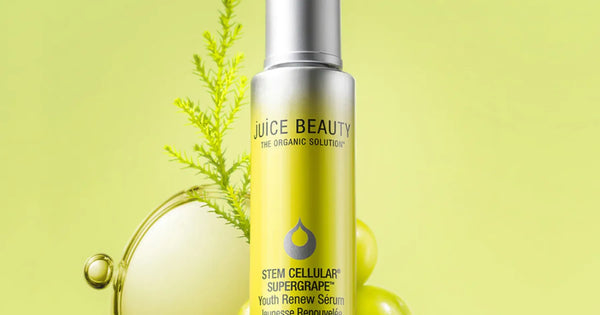In the world of skincare, two superstar ingredients are always stealing the spotlight: Vitamin C and retinol. These are two of the most well known ingredients in skincare, especially when it comes to anti-aging and skin brightening.
The question is: can these two powerhouse ingredients be used together? In this article we will explore the ins and outs of vitamin C and retinol, from their benefits, to how they function together, to how to create a personalized skincare routine that includes both.
Why Do Vitamin C and Retinol Matter for Your Skin?
Both vitamin C and retinol play important roles in maintaining healthy, youthful, glowing skin. Vitamin C is known for its antioxidant properties and ability to brighten skin tone, while retinol is celebrated for its anti-aging benefits and skin renewal capabilities.
To elevate your skincare game, instate a solid skincare routine that incorporates these two ingredients: vitamin C in the mornings, and retinol in the evenings. Let’s get to know these ingredients a little better, and learn more about what they can do for your skin.
What To Know About Vitamin C
Vitamin C, also known as ascorbic acid, is a potent antioxidant that protects the skin from damaging free radicals caused by UV exposure and pollution. It’s also essential for boosting collagen production, which helps to maintain skin firmness and elasticity.
Some of the key benefits of vitamin C in skincare include:
- Brightening Skin Tone: This is vitamin C’s bread and butter. It’s known for reducing pigmentation and evening out skin tone. The result is a beautiful, natural glow.
- Supporting Collagen Production: This important vitamin supports collagen synthesis, reducing fine lines and wrinkles while plumping skin.
- Antioxidant Defense: Supports skin during exposure to oxidative stress, working to reduce the look of visible premature aging.
What To Know About Retinol
Retinol has earned its reputation as the gold standard in anti-aging skincare due to its remarkable ability to address multiple signs of aging. This vitamin A derivative is renowned for its effectiveness in reducing fine lines and wrinkles and improving overall skin texture.
Retinol works by penetrating deep into the skin’s middle layer, the dermis, where it changes your skin at a cellular level, neutralizing free radicals and boosting the production of collagen and elastin.
This creates the much-desired plumping effects that many of us are looking for. Not only does it improve the appearance of wrinkles, but it also helps to reduce enlarged pores. As if that’s not already enough, retinol has an exfoliating effect on the skin, which improves its tone and texture.
Why Do Vitamin C and Retinol Work Well Together?
When used together, retinol and vitamin C make powerful partners! Both ingredients target slightly different aspects of skin health, complementing each other’s effects for an ultra-effective product pairing and more comprehensive results.
Vitamin C is a potent antioxidant that protects the skin from free radical damage and helps brighten your complexion for a gorgeous glow. Retinol on the other hand, stimulates cell turnover and collagen production.
When combined, they work synergistically to address the signs of aging:
- While both products can help support collagen production, when combined the effect is simply more potent.
- Vitamin C defends skin cell health during exposure to the damaging effects of free radicals, while retinol works to repair existing damage.
- Retinol supports cell turnover while vitamin C helps form new, healthy skin cells.
- Vitamin C has been known to stabilize retinol, potentially increasing its effectiveness by helping it to absorb more effectively.
The best part is that all of this is perfectly safe. There are different ways to incorporate vitamin C and retinol into your skincare regimen, and we will share our thoughts on the best way to do it.
How To Incorporate Vitamin C and Retinol Into Your Skincare Routine
To maximize the benefits of each ingredient, we recommend using vitamin C in the morning, and retinol at night. This approach allows you to reap all the benefits of each ingredient, without interfering with the efficacy of the other.
Application Order and Timing Tips
In the morning, after cleansing, apply a vitamin C serum that meets your skincare needs. Follow this with a moisturizer that’s suitable for your skin type. If your moisturizer doesn’t contain at least 30 SPF, slather on some sunscreen.
In the evening, cleanse your skin thoroughly to remove any makeup and built-up debris from the day. Apply your retinol and a rich night cream. When it comes to retinol, your best bet is to start off by using it every other day, or even just a couple times a week, until your skin adjusts to the new product.
You may want to do that with vitamin C as well, but that ingredient is typically a bit gentler than retinol. It depends on your skin type, and sensitive skin may need to be handled with kid gloves, regardless of ingredient combination.
Addressing Sensitivity Concerns
Both vitamin C and retinol can potentially cause skin sensitivity, especially when first introduced. Don’t worry — this is completely normal. To minimize irritation, it’s best to start with products that have a lower concentration of the ingredients.
What does that mean? Well, you might find a serum that boasts more than 20% vitamin C might be extremely effective for those who are used to the ingredient, but may cause redness and irritation for someone with sensitive skin, or someone who is new to the ingredient.
For vitamin C, any concentration that is 10% or below is a great place to start. For retinol, a low concentration in serum is typically between .01% and .03%. This of course does not mean that you can’t use a higher concentration; you might just need to exercise a little trial and error to find what’s best for your individual skin needs.
What Are Some Vitamin C and Retinol Products To Try?
At Juice Beauty, we believe in harnessing the power of nature to create effective, natural, sustainable clean beauty products.
Our skincare solutions are formulated with fruit stem cells and other organic ingredients that nourish your skin, and we combine them with well-known effective skincare ingredients for the best possible results. Let’s take a closer look at some of our favorite products.
Vitamin C Products
Looking to add vitamin C to your lineup? Reach for these:
- Stem Cellular Anti-Wrinkle Moisturizer: If you’re in the market for a new moisturizer, this is one you’ll truly love. 88% of participants in a clinical study reported a reduction in fine lines and wrinkles, while a whopping 100% experienced instrument-measured increases in hydration. This product also features grape plant stem cells and jojoba oil for anti-aging and hydrating effects.
- PreBiotix C-Boost72 Hydrating Whipped Cream: A cream for those with a little more vitamin C experience, this one will get the job done. With vitamin C, niacinamide, and a hydration skin barrier blend, you can expect a clinically proven increase in skin luminosity in just 4 weeks.
- Blemish Clearing Salicylic Acid Serum: If you experience breakouts but still want anti-aging effects, this serum is a godsend. It has salicylic acid, willow bark, vitamin C, and CoQ10.
Retinol Products
When it comes to retinol, these are our top contenders:
- Stem Cellular Sleep Wrinkle Retinol Overnight Eye Cream: Dealing with some fine lines in the eye area? Try out this creamy dreamy product: Retinol, peptides, and hyaluronic acid will have you singing its praises.
- Stem Cellular Anti-Wrinkle Overnight Serum: The perfect foil to the Stem Cellular Overnight Eye Cream, this serum boasts big results: In a clinical study, 67% of users noticed a visible reduction in dark spots in less than 2 months.
What Are Some Skincare Best Practices for Maximum Results?
Skincare is a journey, not a destination. It can take anywhere from six to 12 weeks of consistent use to see any visible results after starting a new product.
Sunscreen is a non negotiable in your routine. Apply sunscreen daily, even on cloudy days, to make sure that you are maintaining the results you get from your retinol and vitamin C.
A solid skincare routine doesn’t have to be complicated. Focus on the following:
- Cleanse: Use a gentle cleanser that works for your skin
- Treat: Apply the serum that suits your needs
- Moisturize: Choose rich, creamy formulations for dry skin, and oil-free gel formulations for oily skin.
- Protect: Never forget your sunscreen!
A Simple Approach to Radiant Skin
At Juice Beauty, we believe that beautiful skin is within your reach — and by incorporating clean, organic skincare products into your routine, you’re nourishing your skin from the outside in.
What you put on your skin is just as important as what you put in your body, so choose wisely.
Sources:
Human Skin Aging and the Anti-Aging Properties of Retinol | Biomolecules
Retinol: The Ideal Retinoid for Cosmetic Solutions | JDDonline
Why is topical vitamin C important for skin health? | Harvard University Health






